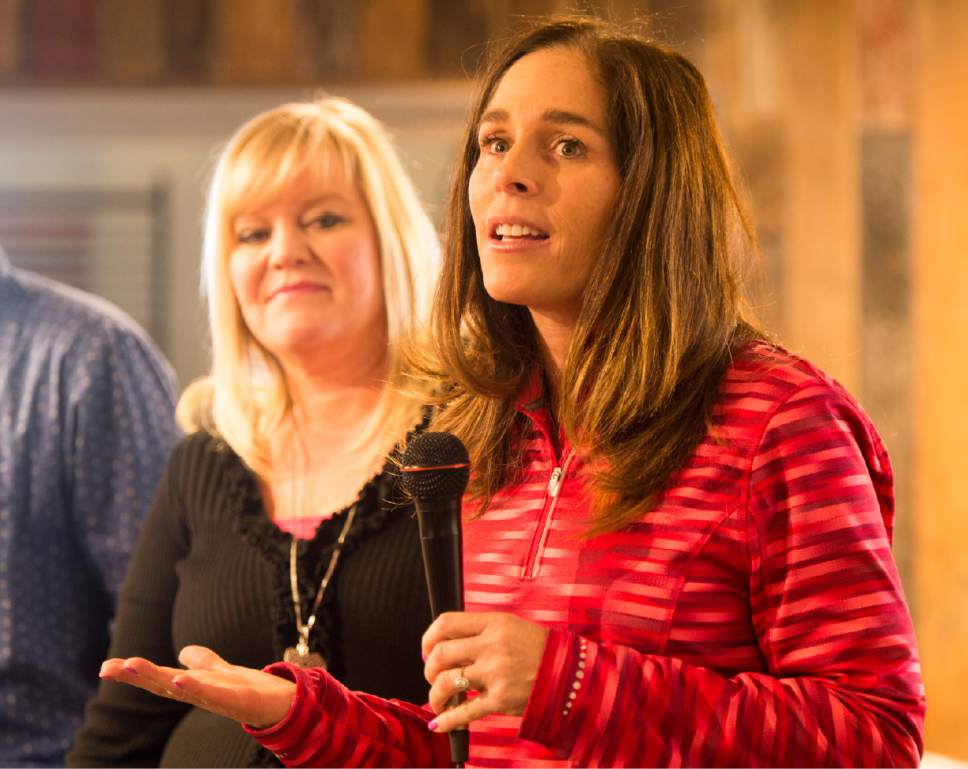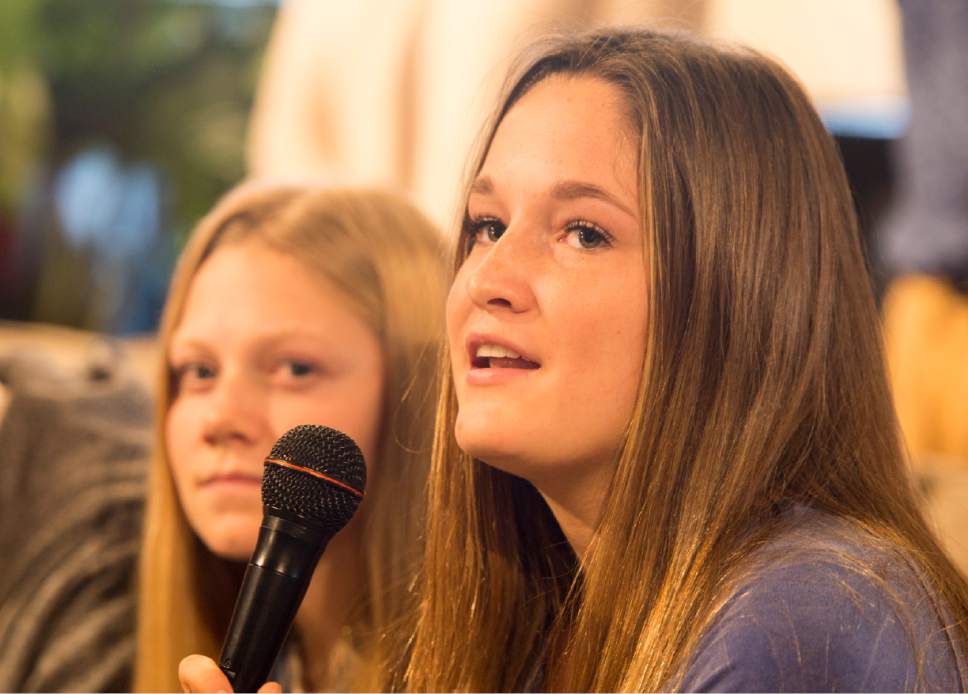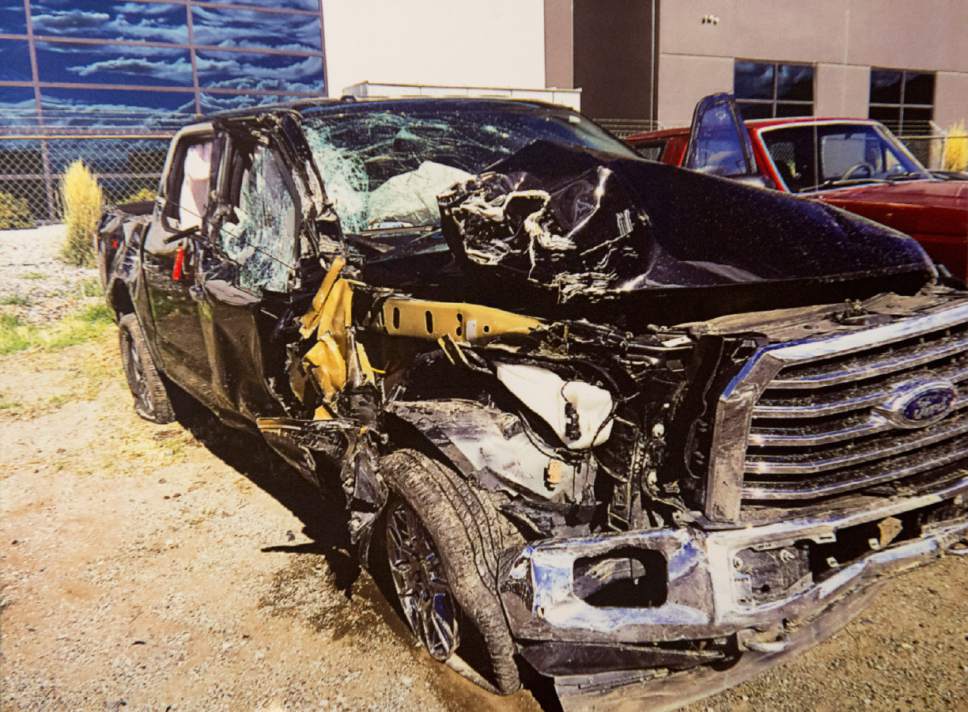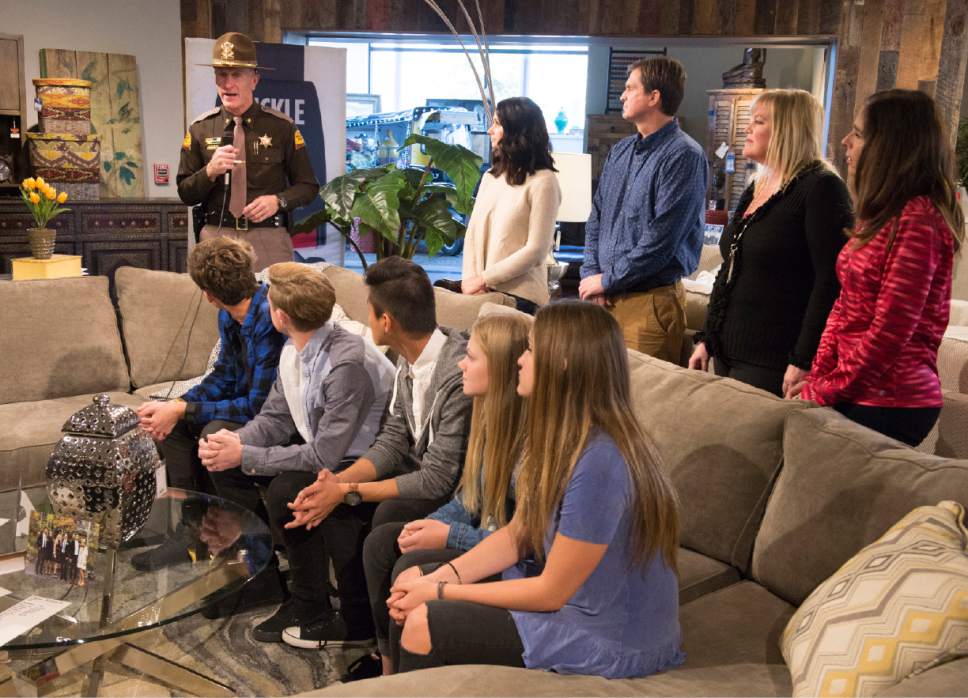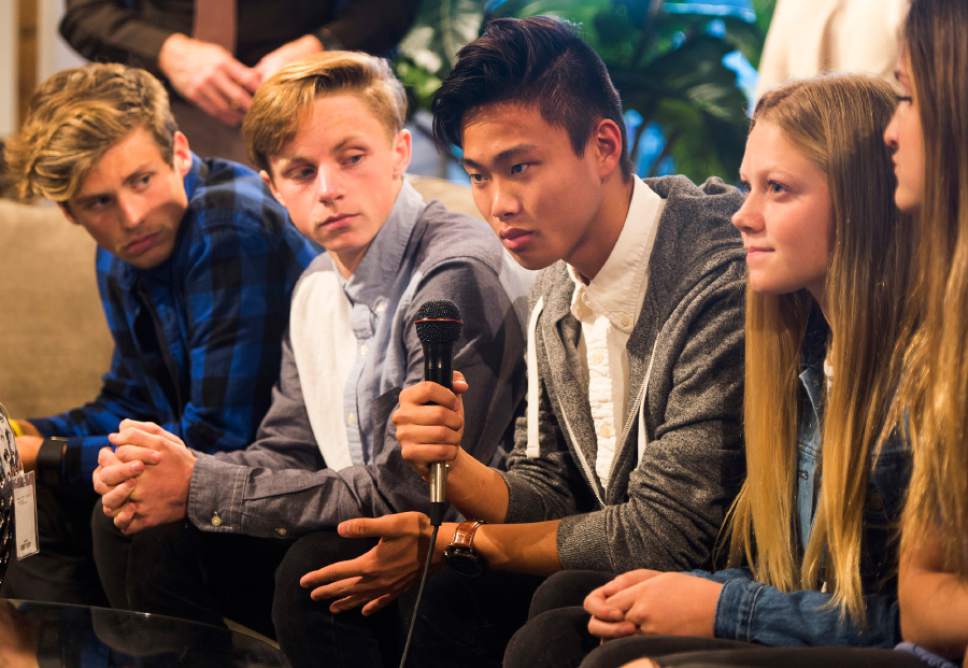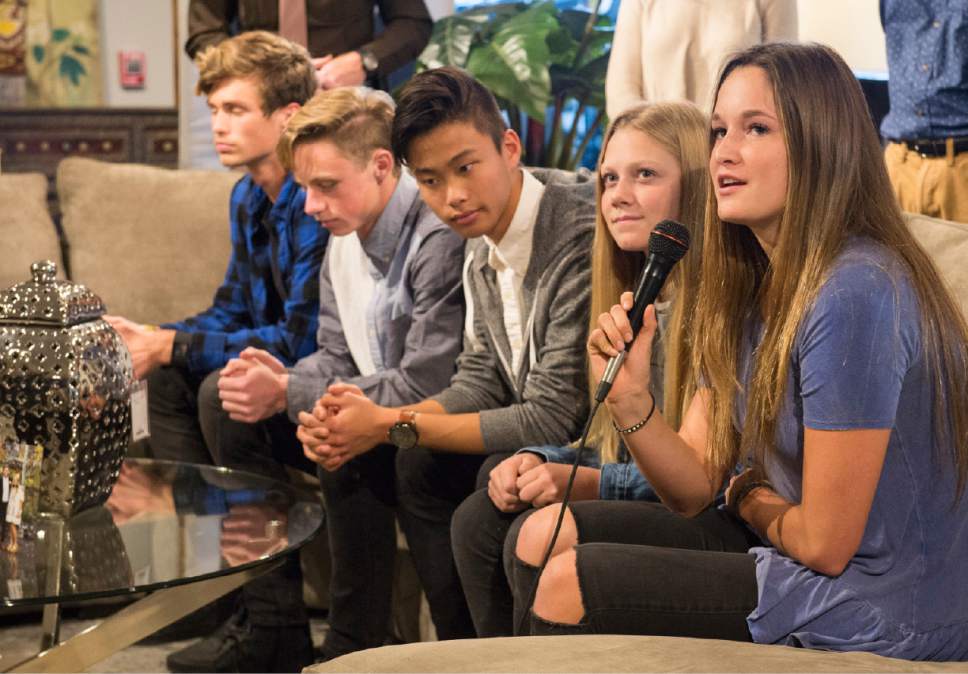This is an archived article that was published on sltrib.com in 2016, and information in the article may be outdated. It is provided only for personal research purposes and may not be reprinted.
Last month, three teen couples from Orem High School ate dinner at Sundance Mountain Resort after homecoming. As they drove down the canyon, a tire caught the edge of the road and their truck rolled several times, ending up in the river.
All survived with no injuries because they wore seat belts. It's a habit they all say is automatic and started as early as they can remember.
"We're grateful for seat belts because if we weren't wearing them, we wouldn't be here to spend Thanksgiving with our families," said Brooklyn Hale, 17, one of the survivors.
The Utah Highway Patrol and Utah Department of Transportation featured the teens at an event Thursday to urge Utahns to buckle up as Thanksgiving approaches next week — one of the busiest and deadliest holiday weeks of the year on highways.
"We far too often see crashes that are way less significant" than the crash the teens survived "that end up in people losing their lives because they chose not to wear a seat belt," said Michael Rapich, superintendent of the Utah Highway Patrol.
"Fifteen percent of the people, roughly, in the state of Utah at any one time choose not to wear seat belt. They represent 50 percent of the deaths we investigate on Utah's highways. That's far too disproportional," Rapich said. "So far this year, 69 people have lost their lives in traffic collisions that didn't have their seat belts on. Those are people who could have survived those crashes."
Rapich said the Highway Patrol will have at least 275 extra shifts by troopers during Thanksgiving week to help keep roads safe — including some that will focus on pulling over people who are not wearing seat belts.
Last year, the Legislature enacted a law that makes failure to wear a seat belt a primary offense, meaning officers may now stop and cite people directly for the lapse. Previously, Utah had a "secondary" law for those 18 and older. A $45 ticket then could be issued only when an officer stopped a vehicle for another reason.
The teens all said that buckling up to save lives is more important than avoiding a ticket.
"Even though we were rolling a lot, I just felt completely secure in my seat," said Kaylee Dial, 16. "Even though so much was going on around me, I just stayed there [safely in her seat] the entire time."
Doyoung Park, 17, who was driving the truck, said no one discussed buckling up as they left on their group date.
"It was just habit," he said. "It just feels weird when I don't wear it."
Kristi Dial, Kaylee's mother, said one of the first things she asked when her daughter phoned about the accident was whether they were wearing seat belts.
"She said, 'Of course, of course,' " Kristi said. "It was a no-brainer for her. It was a habit that was instilled since they were young."
"They made a critically good decision to put their seat belts on," Rapich said. "It gave them the ability to survive the crash. A seat belt is your last defense in order to survive. ... It also gave them the ability after the crash to help themselves."
UDOT spokesman John Gleason added that seat belts are the single most effective traffic safety device for preventing death and injury.
"Nineteen people have lost their lives over the Thanksgiving holidays over the last five years. We've had 50 people who have been seriously injured in crashes," he said. "That needs to stop."



